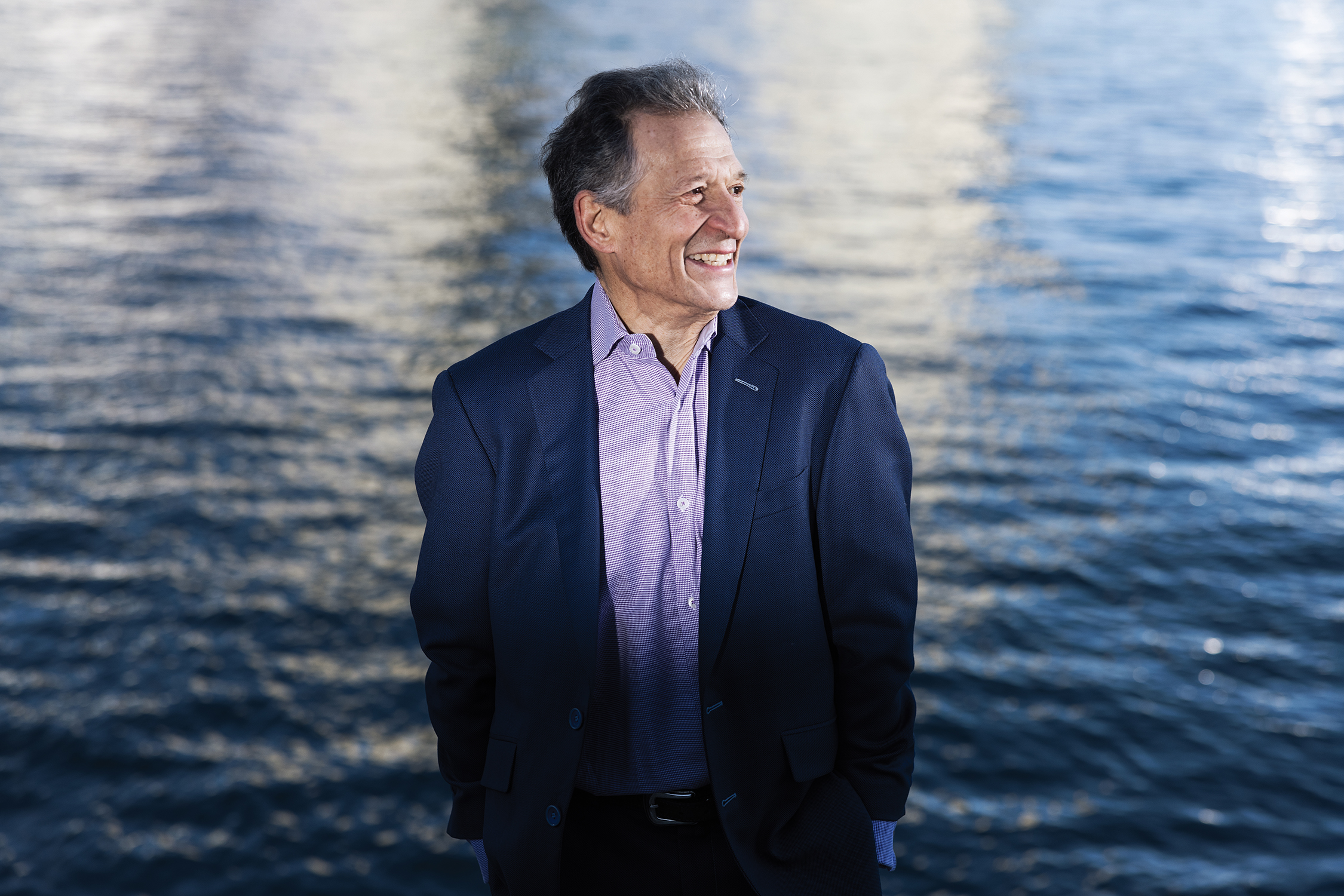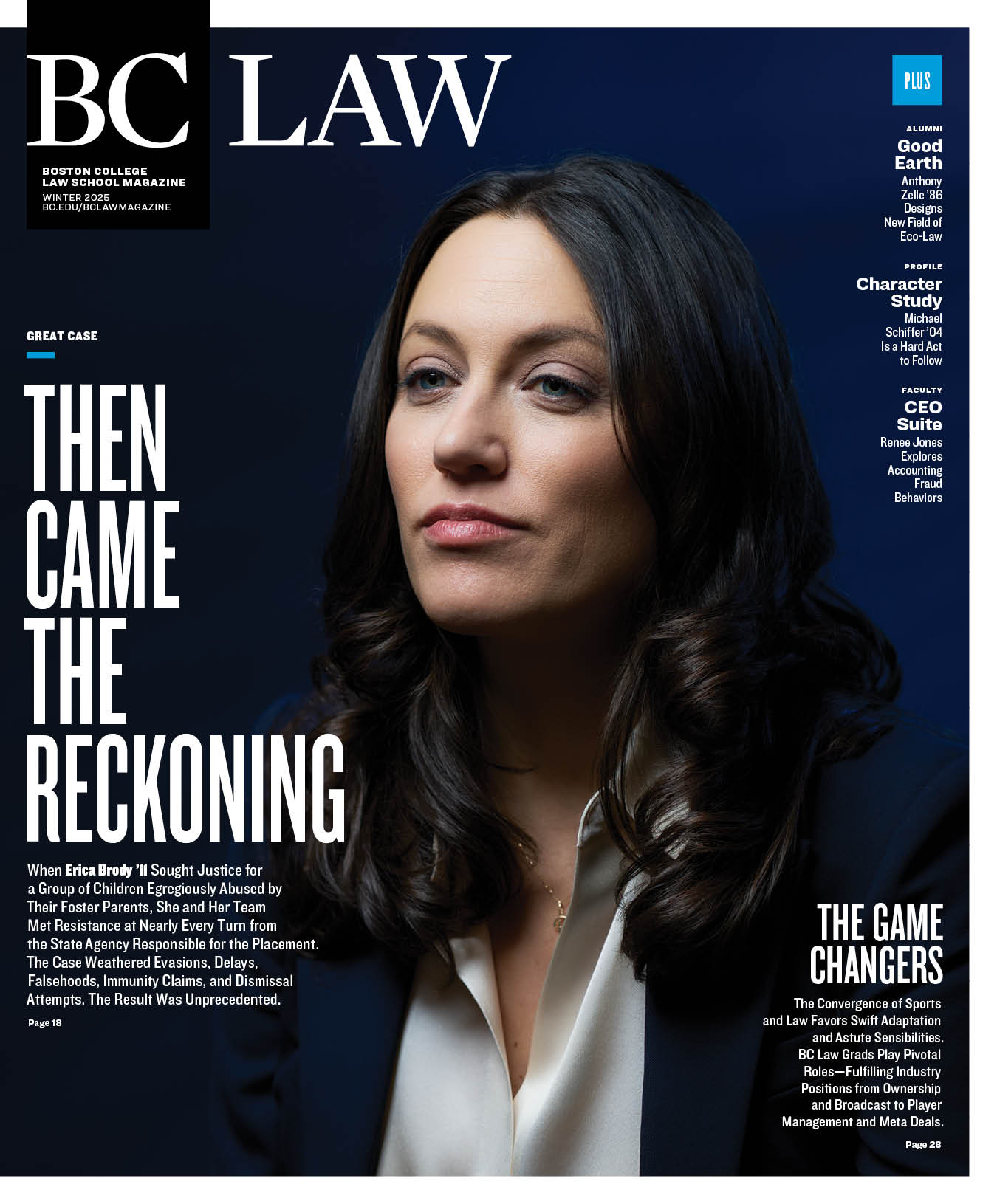Pocket Résumé
Anthony R. Zelle ’86: Originator, Earthlawpractice.com; General Counsel and Director of Education, Earth Law Center. Author: Lead editor and author of the first legal coursebook on ecocentric law and jurisprudence. Mission: Promote the Earth Law movement aligning human laws with Earth’s law and recognizing the rights of Nature. Myth-buster: Believes “human exceptionalism is the fundamental myth we need to rewrite.” Favorite Headgear: A battered green baseball cap with the legend: “Make Earth Cool Again.”
Tony Zelle ’86 can pinpoint the moment that put him on the path to becoming a champion of Earth Law, a burgeoning area of legal practice and jurisprudence. In October 2015, in a bookstore in Burlington, Vermont, he was looking for something to read on a flight to South Africa. One title grabbed him: Wild Law: A Manifesto for Earth Justice, by Cormac Cullinan. Cullinan, the book jacket informed him, is an environmental lawyer based in Cape Town—where Zelle himself was headed.
“I like to believe the universe is always conspiring in my favor,” said Zelle. He contacted Cullinan, who enthusiastically agreed to a meeting, and raced through the book on the plane. Wild Law, published in 2002, sets out an Earth-centered approach to re-ordering human societies and forms of governance. “Earth jurisprudence,” Zelle explained, emphasizes humankind’s dependence on the diversity of Earth’s life and life-support systems. In a rights-based legal system, he said, “natural communities and ecosystems can be recognized as legal persons with procedural and substantive legal rights—like human beings, corporate beings, and sovereign beings.”
Zelle’s meeting with Cullinan in Cape Town was pivotal. Cullinan was already a leading figure in the international Earth Law movement, and after their initial lively exchange of ideas, he connected Zelle with the Earth Law Center (ELC). This small nonprofit, based in Durango, Colorado, has a bold mission “to advance ecocentric laws, policies, and governance for the well-being of the Earth community.”
At the time, Zelle, who lives in Newton, was winding down his law practice as a business litigator representing victims of financial fraud and insurance companies defending coverage and bad faith claims. “I loved my career, I loved trying cases, I loved arguing appeals,” he said, but after thirty years in practice, “seeing what lawyers would do to zealously represent their clients” left him “horribly soured and cynical.”
Immersing himself in the work of ELC, first as a board director, then as general counsel and director of education, Zelle found an antidote to cynicism, and a major new project. He served as lead author and editor of the first comprehensive law school course book on ecocentric law and jurisprudence: Earth Law: Emerging Ecocentric Law—A Guide for Practitioners (Aspen Publishing, 2020). His ambition in the book was to define Earth Law as a field of practice and give people practical tools to catalyze systemic change.
Zelle and his co-editors Grant Wilson, Rachelle Adam, and Herman F. Greene tapped the collective knowledge, experience, and perspectives of a wide range of authors, including Indigenous contributors. Former BC Law professor Zygmunt Plater praised the book for “forcefully charting out a potential new legal paradigm for integrating the demands of global ecosystems—natural and human—and the economic and governmental systems that impact the life and life-support systems of our planet.”
The book is now a primary reference source for practitioners, said Zelle, and a second edition is planned for 2026. It’s the foundation for online summer courses offered by Zelle and ELC since 2020 to over 400 participants from more than fifty countries. “Earth law education and practice are what it’s all about, for me,” said Zelle. “Movement building is at the heart of my life’s purpose.”






